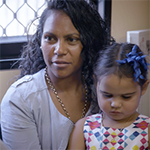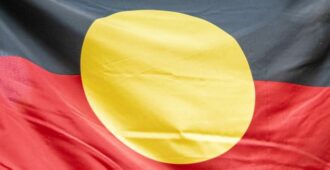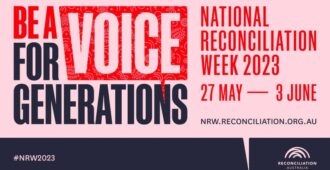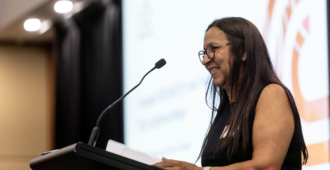
Until recently, very little was known about the health of Aboriginal people who live in urban and large regional centres, who make up the majority of Aboriginal people in NSW. Closing the health and life expectancy gap between Aboriginal and non-Aboriginal Australians is an urgent national priority which requires a much better understanding of the health of Aboriginal people in non-remote areas.
A new video has been developed promoting the important work of SEARCH (the Study of Environment on Aboriginal Resilience and Child Health), which is the largest ongoing study of urban Aboriginal children ever conducted in Australia. More than 1600 urban Aboriginal children aged 0-17 years and their families attending Aboriginal Community Controlled Health Services (ACCHSs) in four areas located in urban and large regional areas of NSW are participating in SEARCH. The four ACCHSs are: Campbelltown (Tharawal Aboriginal Corporation); Wagga Wagga (Riverina Medical and Dental Aboriginal Corporation); Newcastle (Awabakal Ltd), and Mount Druitt (Sydney West Aboriginal Health Service).
SEARCH – which is a collaboration between the Sax Institute, researchers from a number of institutions and the four ACCHSs – regularly provides Australian-first data on key issues including mental health, ear health and speech and language development, chronic disease and housing affecting urban Aboriginal families. The study uses this information to make a real difference to improve the lives of children and their families.
This video captures the unique work of SEARCH and important outcomes achieved in urban Aboriginal health. You will see some of the children and families participating in SEARCH as well as hear from Mr Darryl Wright, CEO of Tharawal Aboriginal Corporation and Professor Sandra Eades, a leading Aboriginal researcher, both of whom have contributed to SEARCH from its inception. Also participating in the video is Darren Carr, CEO of Riverina Medical and Dental Aboriginal Corporation.
Find out more
Discover more about The Study of Environment on Aboriginal Resilience and Child Health (SEARCH)




